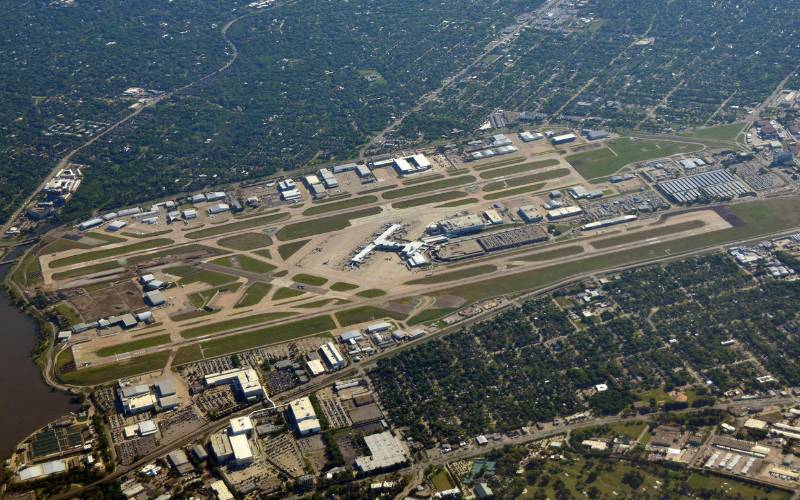Do you want to help build better aircraft?
A career as a mechanical engineer in aircraft design and maintenance might be perfect for you.
Mechanical engineers play a big role in making planes safe. They design parts, fix issues, and come up with new ideas to improve aircraft.
As an entry-level mechanical or aerospace engineer, you could earn between $50,000 and $80,000 per year.
In this job, you’ll get to work on all kinds of aircraft.
You might design new planes, fix old ones, or test components for space rockets. Every day brings new challenges and chances to learn.
If you love math, science, and problem-solving, this could be your dream career.
Role and Responsibilities of a Mechanical Engineer
As a mechanical engineer in the aviation field, you’ll design aircraft parts and components.
You’ll use computer-aided design (CAD) software to create detailed technical drawings. Your skills in math and physics are absolutely essential..
You’ll also test new designs to make sure they meet safety standards. This involves running simulations and analyzing data. You might work on improving fuel efficiency or reducing noise levels.
In maintenance roles, you’ll inspect aircraft and identify issues. You’ll develop repair plans and oversee their implementation. Your problem-solving skills will be crucial in keeping planes flying safely.

Day-to-Day Activities and Tasks
Your daily tasks will of course vary, but might include:
- Attending team meetings to discuss project progress
- Using CAD software to design new components
- Running tests on materials or prototypes
- Analyzing test results and making improvements
- Writing technical reports
- Collaborating with other engineers and technicians
You’ll often work in an office, but you might also spend time in hangars or on airfields.
You’ll need to stay up-to-date with the latest aerospace technologies and manufacturing processes. This might involve attending workshops, conferences, or reading industry publications.
Required Education and Skills for Mechanical Engineers
To work in aircraft design, you typically need a bachelor’s degree in aerospace or mechanical engineering.
Many jobs also require a master’s degree for more advanced positions. Your coursework should include:
- Math (calculus, statistics)
- Physics
- Computer-aided design (CAD)
- Materials science
- Fluid dynamics
- Thermodynamics
Many universities offer mechanical engineering programs as well as aerospace engineering programs.
These give you specialized knowledge about aircraft and spacecraft. Some schools also have co-op programs where you can get hands-on experience.

Start Now by Attending a STEM High School
Going to a STEM high school can give you a head start in mechanical engineering. Schools like Rising Aviation High School offer:
- Advanced math and science classes
- Hands-on engineering projects
- Drone clubs and competitions
STEM high schools often have partnerships with universities and aerospace companies that can give you a behind the scenes look at what it’s like to work there.
This can lead to internships or mentoring opportunities. You’ll get a chance to work on real-world engineering problems early on.
Even if you don’t attend a STEM school, taking advanced math and science classes in high school is helpful.
Look for extracurricular activities like science fairs or engineering clubs to boost your skills and college applications.
If you want to learn more about attending our STEM high school speak with a member of our admissions team.
Career Path and Advancement
You’ll likely start as an entry-level mechanical engineer after getting your bachelor’s degree.
Many begin with internships to gain hands-on experience. As a junior engineer, you’ll work on smaller projects under supervision.
After a few years, you can become a mid-level engineer. You’ll take on more responsibility and lead parts of larger projects. With 6-10 years of experience, you may advance to senior engineer roles.
At the senior level, you’ll oversee major aircraft systems or entire design projects. You might manage teams and make key technical decisions.
A some point in your progression you may also go back to school to earn a masters degree in mechanical engineering or aerospace engineering.
Future Outlook for Mechanical Engineers in Aviation
The future looks bright for mechanical engineers in aircraft design and maintenance. You can expect exciting innovations and steady job growth in the coming years.
Some of these developments in the aviation sector include:
- Aircraft design is moving towards more eco-friendly solutions. You’ll see a push for electric and hybrid engines to reduce emissions. Lighter materials like carbon fiber composites will become more common.
- 3D printing is changing how parts are made. You might use it to create complex shapes that were hard to make before. This can lead to better designs and faster production.
- AI and machine learning are becoming important tools. They can help you analyze huge amounts of data to improve designs. You might use AI to predict when parts need maintenance, making planes safer.
- With the establishment of EVTOL aircraft there are many companies developing all new machines. Every one of these companies needs mechanical engineers on staff to help design and build these aircraft.

Job Market Outlook and Demand
The job market for mechanical engineers is strong. The Bureau of Labor Statistics expects 7% growth by 2030. This means about 30,000 new jobs in your field.
In aviation, the demand is even higher. As air travel grows, more planes will need to be built and retrofitted.
Your skills will be in high demand. Companies need engineers who can work with new tech and materials.
If you keep learning and adapting, you’ll have great career options.
Remember, the aviation industry is always changing.
Stay up to date with new trends to keep your skills sharp.






